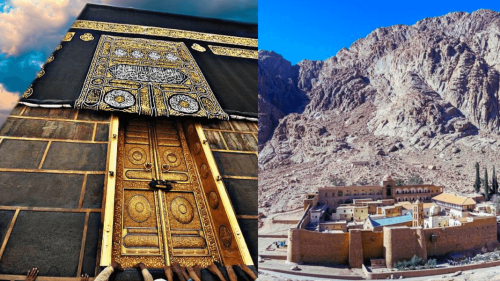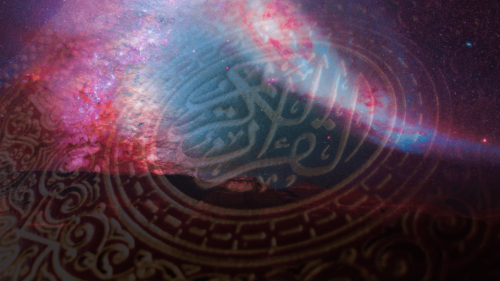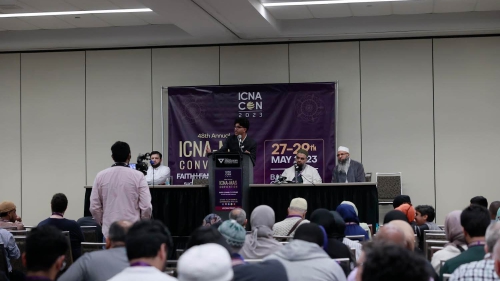Maulana Azad as a Role Model for Contemporary Muslims

On 15th of August, India celebrated its independence from British Colonization. Congratulations to India. For nearly 200 years the British occupied and exploited India and its resources. But we all know this aspect of the British culture first hand and it does not need much elaboration here.
India too has emerged as a democracy after independence. It used to be a great civilization, now it is on its way to becoming a great world power. India is not only a successful democracy and an emerging fountain of knowledge for the World; it is also the other Holy Land. There are only four religions with over a billion adherents, two come from the Middle East (Islam and Christianity) and the other two were made in India (Hinduism and Buddhism).
Whether it is Indian software engineers, doctors, or professors, Indians are not only scripting a phenomenal story of growth in India, but are also driving growth everywhere in the World.
In the U.S. too Indians and their progeny are making an incredible impact. Bobby Jindal the Governor of Louisiana, Fareed Zakaria and Sanjay Gupta of CNN, Deepak Chopra, 11 Nobel Laureates, and thousands of scientists and entrepreneurs are making America a more scientific and prosperous nation. Kalpana Chawla the brave astronaut who died in the Space Shuttle accident was an Indian-American. And then there is yours truly.
One of the most important reasons for India's tremendous post-Independence success is its unwavering focus on education. One of the earliest architects of India's freedom struggle and its focus on education was a Muslim scholar - Maulana Azad, a close companion of Mahatma Gandhi and the first Minister of Education of free India (from 1947-1958). His educational policies that created the world-renowned Indian Institutes of Technologies and brought education to women very early on played a big role in India's social and economic development and its ability to nourish its democracy.
Maulana Azad was a remarkable man by any standards. He was a freedom fighter, a journalist, a scholar, a politician and a statesman. He was born in Mecca in 1988 in a family of Islamic scholars, who taught Islam in Mecca and Calcutta. He received a traditional education in Islamic sciences but in his early teens he recognized that much of his education was religious indoctrination. So he rebelled against it and declared his intellectual freedom and took the nom de plume - Azad. Azad means free.
He became a prominent player in India's freedom struggle, motivated millions of Muslim Indians to join the movement through his various magazines and led the Indian National Congress during the crucial years from 1940-1946. He was an Indian Muslim leader and Islamic scholar who believed in Hindu-Muslim unity and opposed the partition of India on religious grounds. He believed that a secular, democratic India would safe guard the freedoms of both Muslims and Hindus.
Azad's faith in communal harmony came from his belief in the fundamental unity of all religions. Based on his reading of the Quran which claims that God has sent prophets with the divine message to all people, some of them known to Prophet Muhammed others he was not aware of (Quran 40:78) and that all religions are but one (Quran 23:52). It was this belief that made him reach out to Hindus, Christians, and Parsees, successfully.
In spite of his political responsibilities, Azad found time to write books on India and on the Quran. His magnum opus was a thirty-volume commentary on the Quran and several other treatises on the Quran and a history of India's struggle - India Wins Freedom. No leader in the Indian subcontinent, Hindu or Muslim, could match him in erudition and scholarship. No contemporary leader in the entire Muslim World is able to combine political leadership and Islamic scholarship like Azad.
Muslims who live as minorities need leaders like Azad who emphasize respect for pluralism, believe in democracy and eschew mental and social ghettoes. Leaders who use religious identities as political instruments not only undermine the social harmony of societies but also do more harm than good for the very minorities whose interests they claim to advance. We live in an age of globalization, where boundaries are gradually losing their salience, in this age, politics of religious boundaries are artificial and counter productive.
I hope that American Muslims will discover Azad and learn how to live and lead in a secular democracy; and non-Muslim Americans learn that not all Muslim leaders in history were divisive and partisan. Many like Azad, seek political and religious unity.
******
Dr. Muqtedar Khan is Director of Islamic Studies at the University of Delaware and a Fellow of the Institute of Social Policy and Understanding (www.ijtihad.org).
Related Suggestions
What is now Pakistan, India and Bangladesh consisted of over 500 princly states that
were quite autonomous.
What was done by the British in 1947 was the CREATION of two countries: Pakistan
and Hindustan (later to be called India). The Brits then advised the princly states to
join either entities or remain independent.
Both India and Pakstan then devoured these hundreds of states unilaterally with
military occupation or some states chose to join India or Pakistan.
The author is simply regurgitating a myth.
written thirteen volumes on the commentary of the Duran .I have three
volumes in English version by Syed Abdul Latif. Gone are the days when
people like Azad led Muslims. We have political goons now.I think
Muslims do not have a single leader in the world of today who can
match the caliber of renowned men.
Azad's commentary however is only a system analysis while as the Quran
is not mere system.
So, Azad has nothing to teach to NON-American muslims, and they have nothing to learn from him, especially Pakistanis and Bangladeshis and Afghanis?.
The author writes "He received a traditional education in Islamic sciences but in his early teens he recognized that much of his education was religious indoctrination. So he rebelled against it and declared his intellectual freedom and took the nom de plume - Azad. Azad means free.".
Ah, muslims in Continental India rejected him, stayed as 'religiously indoctrinated' and asked for a separate country; the results of that obvious in Pakistan / Afghanistan and even in Bangladesh. They became more and more 'religiously indoctrinated'. Don't you think, it is little too late to discover him and learn anything from him; you cannot learn from his few books; you have to learn from him and the man has dead for 52 years now. Moreover, to learn from him, requires a total change in thinking, which requires tens of years; and nobody is ready to start it in Pakistan, Afghanistan, and Bangladesh; they prefer going with Maudoodi than with Malauna Azad. You cannot learn by paying lip service to the man.
How much he was rejected by Muslim intelligensia? Well, Jinnah called him a 'Quisling Muslim' and refused to shake hands with him in an official meeting in Shimla before the Viceroy and other Indian (Hindu) and Muslim leaders. So much respect for Azad!!
Azad is not even a nostalgia in Pakistan. Is he mentioned even cursorily in Pakistani history books used in schools and colleges? Stupid question.

















